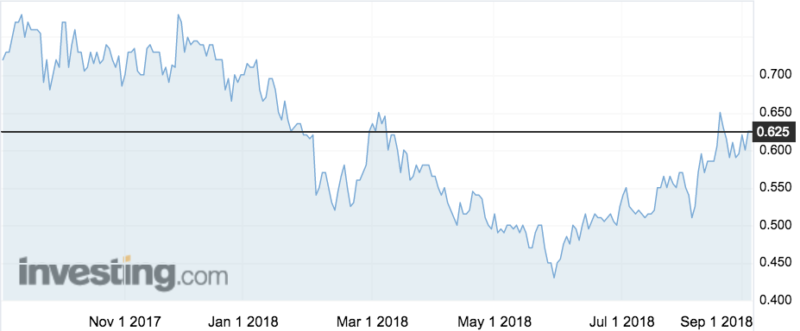Cashed-up Opthea just got good news about its eye disease drug trials

Eye disease fighter Opthea says it’s well-placed to capitalise on a billion-dollar market as its ongoing clinical trial for a new drug received an important safety rubber stamp.
Opthea (ASX:OPT) is undergoing two clinical trials for its “OPT-302” drug which is designed to block two proteins that cause blood vessels to grow and leak, contributing to retinal diseases.
The proteins that Opthea is looking to treat are wet age-related macular degeneration, a chronic eye disease that causes blurred vision or a blind spot in one’s vision, and diabetic macular edema, which causes blindness in diabetics.
Drug sales in age-related macular degeneration are estimated at almost $US5 billion — and the market is expected to grow to $11.5 billion by 2026.
Opthea told investors today that a Phase IIb trial of OPT-302 in wet AMD patients received the go-ahead from a Data and Safety Monitoring Board, allowing continuation of the trial without modification.
Clinical trials are generally divided into three phases. Phase 1 focuses on safety, Phase 2 tests for effectiveness and Phase 3 examines whether the new drug is an improvement on existing treatment. Sometimes trials are further divided into parts A and B, where a B stage is generally more rigorous.
Opthea chief Dr Megan Baldwin told Stockhead the company was riding a wave of results they received in April last year.

“Those positive results from our Phase I/IIa clinical trial for OPT-302 in wet AMD really exceeded our expectations,” she said.
“The two trials that we’re currently undertaking are on the back of that data. The wet AMD trial is 351 patients and we’re over halfway recruited and the second study is 117 patients for DME.”
Shortly after those results, such was the interest, Opthea raised a whopping $45 million to support its clinical development. Dr Baldwin said that cap raise ensures the company is well-funded.
“We’re fully cashed-up and we will be cash positive through early 2020, which is when we expect to report primary data from the wet AMD study,” she said.
- Subscribe to our daily newsletter
- Bookmark this link forsmall cap news
- Join our small cap Facebook group
- Follow us on Facebook or Twitter
OPT-302 is intended to be used in conjunction with currently available drugs Lucentis (wet AMD) and Eylea (DME).
“In 2017, the market for those drugs was $9.3 billion, so there’s a large market opportunity open to us,” Dr Baldwin said.
“We’re not looking to replace those products, just give patients a more effective treatment. Any small addition that you can provide to people with vision problems, even if it’s just one line of vision on an eye chart, is a significant improvement to the quality of life for the patients.
“They stay in the workforce longer, they’re more independent and it’s less cost to the health system.”
The company’s shares rose slightly on the news, up to 62.5 cents, a rise of four per cent.
UNLOCK INSIGHTS
Discover the untold stories of emerging ASX stocks.
Daily news and expert analysis, it's free to subscribe.
By proceeding, you confirm you understand that we handle personal information in accordance with our Privacy Policy.








